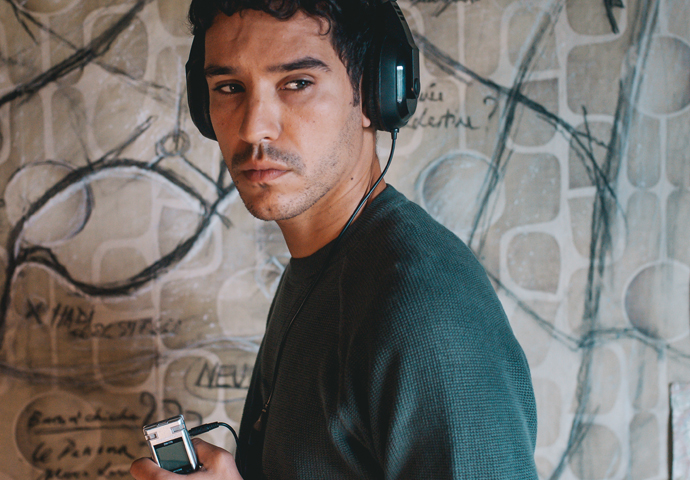Review: Ghost Trail
Compelling and tense thriller based on true stories of Syrian exiles tracking down war criminals
Thursday, 18th September 2025

Adam Bessa as Hamid in Ghost Trail
GHOST TRAIL
Directed by Jonathan Millet
Certificate: 12a
☆☆☆☆
The hunt for those responsible for crimes under the Bashar al-Assad regime in Syria is the focal point of this compelling and original thriller.
In Ghost Trail, director Jonathan Millet weaves a narrative that is tense and understated, based on true stories of Syrian survivors tracking down those who did the regime’s violent bidding.
We meet Hamid (Adam Bessa), a Syrian in Strasbourg trying to come to terms with his experience in the Sednaya prison, Damascus.
We learn he is part of a secret cell of Syrian exiles who are investigating the whereabouts of former prison officers who beat and killed inmates in Assad’s notorious cells.
He believes he may have found the man who tortured him – an exile now working as a university professor.
But he has to get close up to make sure he has identified the right person, and he faces the moral dilemma of what to do with the information he has gleaned.
There is thick nervous tension coming from Bassa’s performance – the trauma he carries fills the atmosphere. He suspects everyone.
Alone with a memory he cannot shake, he is compelled to wonder: is his work tracking down the perpetrators of crimes helping him recover?
In a journey that takes him across European borders as he seeks justice, and navigates both the Syrian exile community and the bureaucracy he has to abide by, Hamid is asked to wear a mask so he can get close to his prey – but also to hide the devastating experiences he suffered at the hands of the man he is tracking down.
Millet spent time living in Syria. He stayed in the city of Aleppo, the scene of a hideous four-year battle that saw thousands killed. He met friends who had managed to get to Istanbul and safety, and followed their journeys.
He spent time in a treatment centre for people who had suffered torture and met many Syrians who could testify to what happened during imprisonment at the hands of the Assad regime.
He heard about underground networks who were gathering evidence and were tracking down war criminals.
The trauma of the Syrian experience shines through, as does the choice those who were wronged have to make. Should they seek revenge or justice? Can a violent response to those who have committed violence be acceptable, cathartic?